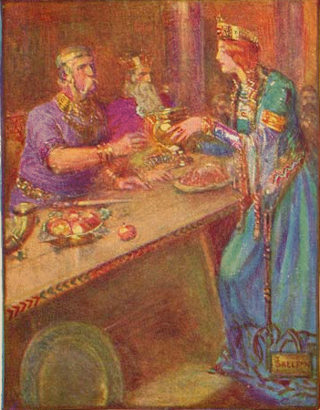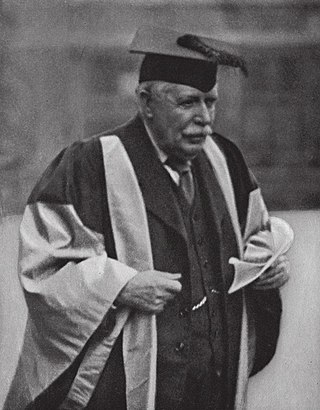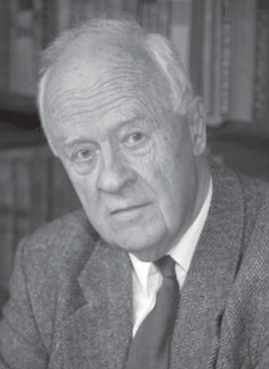Philology is the study of language in oral and written historical sources; it is the intersection of textual criticism, literary criticism, history, and linguistics with strong ties to etymology. Philology is also defined as the study of literary texts and oral and written records, the establishment of their authenticity and their original form, and the determination of their meaning. A person who pursues this kind of study is known as a philologist. In older usage, especially British, philology is more general, covering comparative and historical linguistics.

Wealhtheow is a queen of the Danes in the Old English poem, Beowulf, first introduced in line 612.
Germanic philology is the philological study of the Germanic languages, particularly from a comparative or historical perspective.
German studies is the field of humanities that researches, documents and disseminates German language and literature in both its historic and present forms. Academic departments of German studies often include classes on German culture, German history, and German politics in addition to the language and literature component. Common German names for the field are Germanistik, Deutsche Philologie, and Deutsche Sprachwissenschaft und Literaturwissenschaft. In English, the terms Germanistics or Germanics are sometimes used, but the subject is more often referred to as German studies, German language and literature, or German philology.
The Legend of Good Women is a poem in the form of a dream vision by Geoffrey Chaucer during the fourteenth century.

Wilhelm Heinrich Wackenroder was a German jurist and writer. With Ludwig Tieck and the Schlegel brothers, he co-founded German Romanticism.

Hector Munro Chadwick was an English philologist. Chadwick was the Elrington and Bosworth Professor of Anglo-Saxon and the founder and head of the Department for Anglo-Saxon and Kindred Studies at the University of Cambridge. Chadwick was well known for his encouragement of interdisciplinary research on Celts and Germanic peoples, and for his theories on the Heroic Age in the history of human societies. Chadwick was a tutor of many notable students and the author of numerous influential works in his fields of study. Much of his research and teaching was conducted in cooperation with his wife, former student and fellow Cambridge scholar Nora Kershaw.
Anatoly Liberman is a linguist, medievalist, etymologist, poet, translator of poetry, and literary critic.
George Tobias Flom was an American professor of linguistics and author of numerous reference books.
Peter Dendle is a professor of English at Penn State Mont Alto, teaching classes on folklore, 20th and 21st century representations of the Middle Ages, Old and Middle English, and the monstrous. Dendle has written books and articles on a number of topics, including cryptozoology, philology, the demonic in literature, zombie movies, and Medieval plants and medicine. His work on zombies was featured by NPR.
Cambridge University Library, Ff. i.27 is a composite manuscript at the University of Cambridge. It was formed by adding a 14th-century Bury St Edmunds book to a compendium of material from 12th-century northern England. The latter compendium had once been part of Corpus Christi College Cambridge MS 66. With its original content, it had at one time been at Sawley Abbey, though it was probably produced somewhere else, perhaps Durham. It is a source for the Durham poem, which describes the city and its relics.
Rémundar saga keisarasonar is a medieval Icelandic romance saga, and the longest of those romance-sagas composed in medieval Iceland.

Dennis Howard Green was an English philologist who was Schröder Professor of German at the University of Cambridge. He specialized in Germanic philology, particularly the study of Medieval German literature, Germanic languages and Germanic antiquity. Green was considered one of the world's leading authorities in these subjects, on which he was the author of numerous influential works.
Roberta Frank is an American philologist specializing in Old English and Old Norse language and literature. She is the Marie Borroff Professor Emeritus of English at Yale University.
Durham, also known as De situ Dunelmi, Carmen de situ Dunelmi or De situ Dunelmi et de sanctorum reliquiis quae ibidem continentur carmen compositum, is an anonymous late Old English short poem about the English city of Durham and its relics, which might commemorate the translation of Cuthbert's relics to Durham Cathedral in 1104. Known from the late 12th-century manuscript, Cambridge, University Library, Ff. 1. 27, Durham has been described both as "the last extant poem written in traditional alliterative Old English metrical verse" and as being placed "so conveniently on the customary divide between Old and Middle English that the line can be drawn right down the middle of the poem." Scholars have dated the poem either to the twelfth century or to some point in the second half of the eleventh century.
Jane Chance, also known as Jane Chance Nitzsche, is an American scholar specializing in medieval English literature, gender studies, and J. R. R. Tolkien. She spent most of her career at Rice University, where since her retirement she has been the Andrew W. Mellon Distinguished Professor Emerita in English.
Robert Dennis Fulk is an American philologist and medievalist who is Professor Emeritus of English and Germanic Studies at Indiana University Bloomington.
Kenneth W. Warren is an American academic and author. He is a professor of English at the University of Chicago. He is a scholar of American and African American literature from the late 19th century to the middle 20th century.
Tison Pugh is a literary scholar. He has been a professor of English at the University of Central Florida (UCF) since 2006. Before coming to UCF, Pugh was a lecturer at the University of California, Irvine, in the 2000–2001 academic year.




